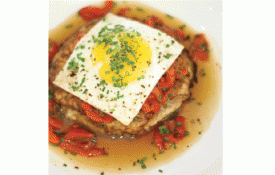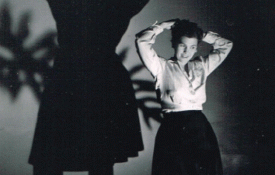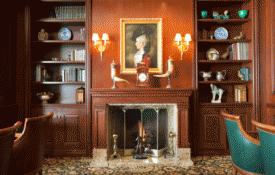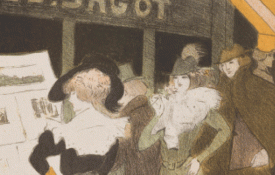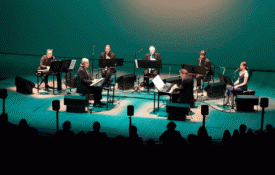The novel coronavirus has canceled almost everything—except kindness. It has silenced the buzzing of social activities, errands, and travel and systematically erased all entries on our calendar pages. Instead, those plans have been replaced by the immediate and ongoing job of protecting, caring for, and bestowing kindness to ourselves and others. Each day, as we wake up to a new normal amidst this global pandemic, who and what is essential to our lives crystalizes. We all give gratitude—and those who can provide supplies and funding—to those on the frontlines: healthcare workers, police officers, journalists, postal workers, delivery people, grocery store employees, among many others, who risk their lives for others. At this moment, thinking of others is our very purpose. Kindness saves lives. Giving does too.
When I announced my gift to fund MOCA’s “Art for All” program at its 40th anniversary benefit last May, I said that when you believe in something, you have to dig deep until it hurts. Now, when so many people are hurting, giving has become intuitive to the human heart, and the mind agrees. Without a plan or the precious gift of time, we respond to a crisis by asking, how can we help and how fast can we do it?
Immediately after the first coronavirus case was confirmed in the United States, the Americans for the Arts nonprofit in Washington, DC, generated and distributed a survey to gather data on the economic impact on the arts and cultural organizations, and creatives. Two weeks in, the estimated loss was in the billions. As museums, theaters, music venues, arts organizations and libraries were forced to shut their doors, the financial hardship on artists and those who work to support them was overwhelming. The fact that the arts were recognized by our federal government in the CARES Act bill, in keeping with AFTA’s findings, underscores how essential the arts are to the fabric of our nation, especially during a time of emergency. But that funding only addresses the first wave of losses. Every day, the deficit grows.
As an arts patron and philanthropist, I’ve always believed that embedded in brushstrokes on a canvas or the heartache felt in blue notes is a universal language we all see and hear without ever having learned a single consonant or vowel.
We are all assessing where we can make the most significant impact but the resounding reaction in the art world is to continue to collect and give. While the future may be filled with uncertainty, it is clear that the arts are paramount to our survival on a local, national and global level. As an arts patron and philanthropist, I’ve always believed that embedded in brushstrokes on a canvas or the heartache felt in blue notes is a universal language we all see and hear without ever having learned a single consonant or vowel.
As we stay at home and must rely on phone calls, texts and video chats to communicate with the outside world, free art has never been more accessible to the general public. Artists and organizations extending concerts, educational programs and virtual tours do so because these offerings uplift, heal and calm us from the isolation and loss of control we are experiencing. They inspire meaningful connections and instill hope at a time when we physically cannot touch the ones we love.
I am awestruck by how swiftly key organizations I support have raised money and conceived of innovative online programs not only to keep the arts relevant but to nurture and nourish us. MOCA launched #VirtualMOCA, a daily series of educational and creative events. The Grammy Museum’s #MuseumatHome offers never-before-released Q&As with artists, music education, a series of production classes and virtual exhibit tours. Visionary Women has raised $100K for LA-based organizations that provide shelter, food and resources for underserved populations.
“In spite of everything I shall rise again: I will take up my pencil, which I have forsaken in my great discouragement, and I will go on with my drawing,” Vincent Van Gogh famously said. No matter what their circumstances are, artists have always been masterful at continuing to produce new work, document history and interpret our current climate. Street artists in all quadrants are painting murals, signs and billboards expressing emotions that so many of us are feeling right now. In Los Angeles’ Pico-Robertson area, Hijack’s Pandemonium mural, with two soldiers battling an invisible threat with cleaning equipment and solutions, serves as a call for production of sanitizing products and a commentary on the mass hysteria of stockpiling goods. If we look around (keeping at least a six-foot distance from others), we are likely to see their work on the sides of buildings or beneath our feet.
Many of today’s top entertainers, including John Legend, Chris Martin and Alicia Keys, have performed stripped-down live sets from their homes. Debbie Allen is continuing to bring daily interactive dance to our living rooms, and there are no lines to enter DJ D-Nice’s packed #ClubQuarantine. These intimate, unrehearsed and shared events remind us that we are in this together. And as we navigate our days alone, they are so much richer when we let the arts into them.
When the world has recovered, we will rely on artists’ recordings of our daily temperature and what it felt like to live in such an uncertain time, with its inherent pain and beauty of silver linings. They will remind us of how we made people our priority and were able to exist with just the essentials. Artist Chuck Styles echoes this sentiment on his Instagram page. “IM NOT MAKING ART. IM CREATIVELY DOCUMENTING HISTORY,” he writes about his new art series titled FRONT LINE. One piece, Buy, includes the message, “Buy food, water, gas, vitamins, first-aid, toilet paper…then ART.”

“Buy” (Courtesy of Chuck Styles).
With a $10M donation to LA arts organizations by J. Paul Getty Trust, businesses such as Netflix giving major donations to arts nonprofits, and other local and state governments creating emergency funding for the arts, we have clear confirmation of how important art is in all of our lives. Illinois Gov. J.B. Pritzker summed up the arts’ role in our collective consciousness, “Making sure that artists are still producing and creating is going to be vitally important as this great country recovers.”
What a beautiful way to express the urgent need during this global pandemic to continue to invest in the arts for our personal and collective recovery, strength and perseverance.








































